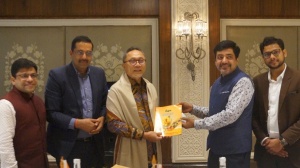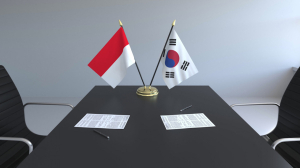Trade Minister aims to conclude IEU-CEPA negotiations next week
Minister of Trade Zulkifli Hasan has set the target of concluding the negotiations for the Indonesia-European Union Comprehensive Economic Partnership Agreement (IEU-CEPA) next week, marking the end of nine years of discussions.
"Negotiating with former colonizers is not easy. Currently, many factors complicate our exports to the European Union because we do not have IEU-CEPA. Hopefully, it can be completed by September 2024," Zulkifli said in Jakarta on Thursday, August 29, 2024.
With the IEU-CEPA in place, Indonesian export commodities entering the European Union would be exempt from import duties.
Zulkifli cited Vietnam as an example, which completed a similar agreement with the European Union, allowing its footwear exports to enter duty-free. In contrast, Indonesian footwear exports to Europe face a 6 percent import duty.
The agreement is expected to boost national economic growth, potentially pushing it to reach 7 percent. Indonesia has engaged in similar trade agreements with other countries, such as China and India.
Indonesia's trade value with China has increased by 500 percent over the past three years, while its trade value with India grew nearly 300 percent during the same period.
"Thus, trade agreements with other countries are steps the government must take," Zulkifli said.
Another advantage of the IEU-CEPA is that it could help Indonesia avoid the implementation of the European Union Deforestation Regulation (EUDR). This regulation would restrict the entry of seven commodities into the EU: soybeans, livestock, palm oil, wood, cocoa, coffee, and natural rubber.
National industries that will be affected by the implementation of the EUDR in January 2025 include palm oil, cocoa, coffee, wood, and natural rubber.
Regarding palm oil, Zulhas believes the regulation will not impact the domestic industry. The government plans to increase domestic palm oil consumption through its biodiesel program.
Currently, the government has implemented a 35 percent palm oil blend with diesel, known as B35. This blend will be increased to B40 by January 1, 2025.
Furthermore, the government plans to increase this blend further to B60. Additionally, the blending of palm oil with aviation fuel (avtur) has also entered the trial phase.
So far, the government has successfully mixed 2.4 percent palm oil with avtur through the Bioavtur J.24 program, and this percentage is projected to increase to 50 percent.
"If the Bioavtur program can be implemented, the government’s palm oil absorption could increase by 3 million tons. The domestic market will need a lot of palm oil," Zulkifli concluded.
Already have an account? Sign In
-
Start reading
Freemium
-
Monthly Subscription
30% OFF$26.03
$37.19/MonthCancel anytime
This offer is open to all new subscribers!
Subscribe now -
Yearly Subscription
33% OFF$228.13
$340.5/YearCancel anytime
This offer is open to all new subscribers!
Subscribe now






